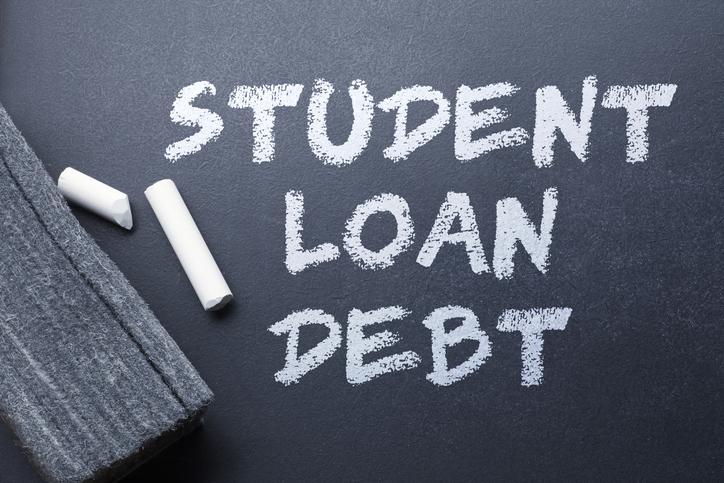Politicians. They’re just like us. Kind of. While we have no idea what it means to sit and govern on a committee or spend long days giving speeches, shaking hands and plastering on a smile in order to get a vote in November, we do know what it’s like to pay off student loans. And as it turns out – politicians do too.
While most politicians make the news for their plans to tackle student debt, very few are known to actually be paying it off. That’s why Alexandria Ocasio-Cortez, the freshman Congresswoman from New York, made headlines when she made a student loan payment during a House Financial Services Committee on student debt, according to Yahoo.
During the hearing, AOC told witnesses and the audience, “I literally made a student loan payment while I was sitting here at this chair, and I looked at my balance, and it was $20,237.16. I just made a payment that took me down to $19,000 so I feel really accomplished right now.”
Typically, candidates don’t advertise their own student loan debt, but Roll Call reports that 68 members (or 13%) of Congress currently have student loan debt. For the members of Congress, the median student loan debt is $15,000 while the average is $37,000. Eight of those 68 have student loan debt in excess of $100,000.
Student loan debt is not just limited to members of Congress. Presidential candidate, Pete Buttigieg, has been very transparent about his own debt. He and his husband, Chasten, owe about $130,000 in student loans. Buttigieg was a Rhodes Scholar who attended both Harvard and Cambridge and graduated with very little debt; however, his husband sought a Master’s in teaching and incurred both undergraduate and graduate debt.
Despite their struggles with student loan debt, though, Buttigieg does not advocate for free college tuition like some of his fellow Democratic candidates. A few of the frontrunners, like Elizabeth Warren and Bernie Sanders, are advocating to make college free in order to eliminate the student loan debt crisis in the country.
According to Forbes, the national student loan debt is at an all-time high of $1.56 trillion with over 44.7 million Americans owing. And now we know that 68 of them are elected officials in Congress, and one is a Presidential candidate.
If you do have to borrow student loans to pay for college, always borrow federal first. These loans come with the smallest interest rate, meaning you’ll have to pay less over the lifetime of the loan. Private student loans typically carry a larger interest rate; however, they are your best option when you have exhausted all of the others.
How much to borrow. As a rule of thumb, you should never borrow more than your expected annual income. The best way to figure this out is to research a few career options you’re interested in pursuing. Find the average starting income and make your student loan decisions based on that figure. If you’re completely undecided on a major or career, know that the average starting salary for a college graduate is $48,400, according to CNBC. So don’t borrow more than that.
Paying back student loans. Student loans have a six month grace period, meaning you don’t have to pay them back until six months after graduation. This allows students time to find a job, settle into an apartment and hopefully live a few months figuring how to properly budget.
There are multiple strategies for paying off student loans quicker. The first is the debt avalanche method. It encourages borrowers to pay off the student loans with the highest interest rate first. Though it may not be the loan with the largest or smallest amount, it will save borrowers more in the long run.
You could also take advantage of extra income opportunities. Whether it’s pet sitting, babysitting or cleaning houses, these jobs can help you make extra income – and extra payments.
Speaking of extra payments, you should make them as often as possible. Making extra payments will help you pay down those student loans faster. After all, making the minimum payment amount each month will take you decades to pay off your student loans. By making extra payments, you can cut down on that time by a considerable amount. Even if the extra payments are only $50 or $100 at a time, anything will make a difference.
So if you come into some extra cash over the holidays or through a random gift from parents, put that money towards your student loans – and not on a new TV or shopping spree.
Politicians Struggle to Pay Off Student Loan Debt Too

AOC makes a point during a committee meeting by paying down her own student loans.
